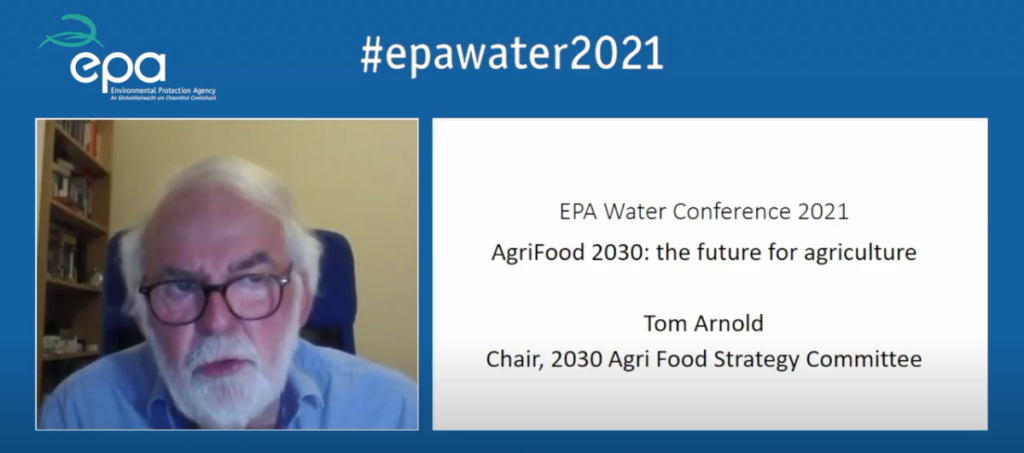There will be no recommendation to reduce the size of the national herd in the Agri-Food Strategy 2030, which is expected to be published in early July.
But an increase in the herd size will result in Ireland’s failure to achieve climate neutrality by 2050.
This was one of the key messages from Tom Arnold, chair of the Agri Food Strategy Committeee, who was speaking at a recent Environmental Protection Agency (EPA) national conference.
In his presentation to the 2021 EPA Water Conference, he said that the agri-food sector, along with society and government are faced with having to make significant changes, including aiming to be climate neutral by 2050 “with verifiable progress made by 2030”.
But, the Agri Food Strategy Committee chair said the “core of Ireland’s agri-food output will continue to be grass-based livestock production, wherein lies Ireland’s natural competitive advantage”.
“This is important because there has been public debate about moving away from our current production systems,” he said.
“We don’t believe that that is a realistic prospect even though we acknowledge, in the strategy, that there is a clear need to reduce meat consumption in many developed countries.
“But we also acknowledge that, in the wider world, there is going be be a continuing demand for high-quality sustainably produced livestock products – including dairy and meat – and Ireland is in a very good position to supply those to that growing market,” he said.
However, he added that the committee will recommend in its report that the national herd should not increase.
“So that means, effectively, there is a ceiling to the national herd, but it still has to be decided as to how that will be divided between the beef and the dairy sector.”

The strategy, once published, will set down a range of policy directions, that will help to ensure economic, environmental and social sustainability of the agri-food sector in the decade ahead.
But follow-up discussions will need to be had in a number of areas for decisions to be made that conform with the policy directions, Tom said. The committee did not have the time to do this.
“There will be a process to examine the detailed plans to manage the sustainable footprint of the dairy and beef sectors and that will be done in the second quarter of 2022,” he said.
He added that the committee has broken new ground by elevating the issues of “food and health into a much more prominent position than any previous agri-food strategy up to now”.
“And what we say is that food and health should be brought to a new level of political and policy importance.
“After Covid-19, a national conversation should begin about securing the nation’s health.
“This will require a whole-of-government and a whole-of-society approach, and we propose improved policy coherence for food, nutrition and health through the establishment of a high-level implementation group co-chaired by the Department of Agriculture, Food and the Marine and the Department of Health.”
